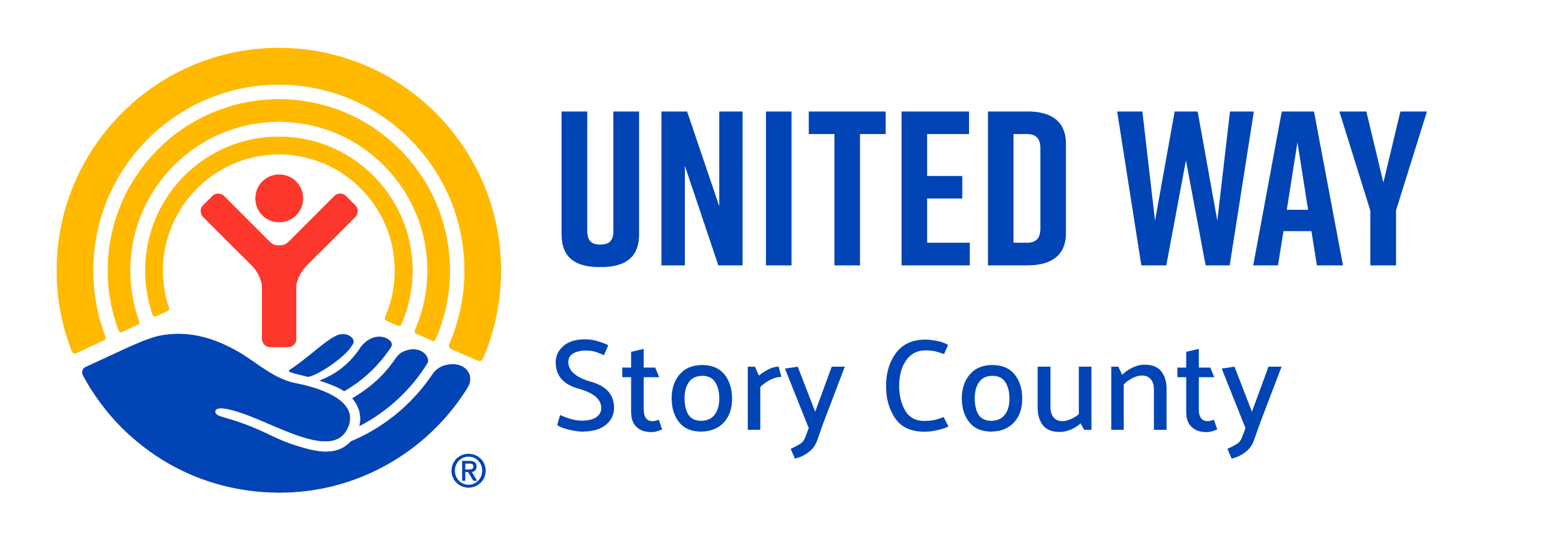As the current fundraising campaign is about to conclude, we continue to learn how great things happen when we live united. We live in a generous community which comes together to help advance the common good in the areas of education, income and health – the building blocks for a good quality of life.
Before we can allocate the funds raised, we have to understand the funding process and requests.
Story County is unique in how funds are allocated to human service programs and services. The ASSET (Analysis of Social Services Evaluation Team) process has been part of the landscape since 1985. At that time, key funders in the county determined the best way to make an impact was to work together to identify needs and fund solutions. The process today includes five funders – United Way of Story County (UWSC), Central Iowa Community Services (CICS), City of Ames, Iowa State University Government of the Student Body and Story County. Each funder has five volunteers (CICS has three volunteers) to review budget requests, program data and outcomes. ASSET volunteers then make recommendations back to each funder that ultimately approves the final allocation.
Budgets are due in late September, and the hearings take place in January. Each volunteer receives a budget book that includes slightly more than 500 pages and represents more than 90 programs. Volunteers are assigned to one of four panels so they can take a deeper dive into about 20-35 programs. Funders are made aware of the budget requests by December and then determine the amount of funds that will be made available for the allocations process.
This year, total ASSET request is $4,331,879. Compared to the current year, which is $3,745,052, this year’s request is a 15.6% (or $586,827) increase. For UWSC, the requests total $1,164,298, a 16% (or $161,471) increase from current allocations of $1,002,833.
Looking at each panel gives a clearer picture of what attributes to an increase in requests for United Way funding.
Panel one involves health services. Current year funding is $139,593; Fiscal Year 17 request is $159,922, an increase of $20,329. Overall requests have increased across programs including mental health, developmental disabilities and dental services.
Panel two involves basic needs. Current year funding is $256,578; Fiscal Year 17 request is $302,105, an increase of $45,527. Program areas that make up the bulk of this increase include the area of transitional living services for youth, families, and adults. In addition, funding to provide services that support individuals and families through difficult times has also increased.
Panel three involves children’s services. Current year funding is $298,709; Fiscal Year 17 request is $363,336, an increase of $64,627. This panel has the highest requested increase from United Way, and the increase would primarily support children and youth in their educational needs out of school and during the summer months.
Panel four involves prevention and support services. Current year funding is $307,947; Fiscal Year 17 request is $338,935, an increase of $30,988. Overall requests have increased across programs including prevention and advocacy services, especially in the area of mental health for children, families and individuals.
As a donor myself, I have continued to give to the LIVE UNITED Campaign with the confidence that UWSC and ASSET are diligent about identifying the needs in the community and making the best funding decisions to meet those needs. You should feel good about it, too!
